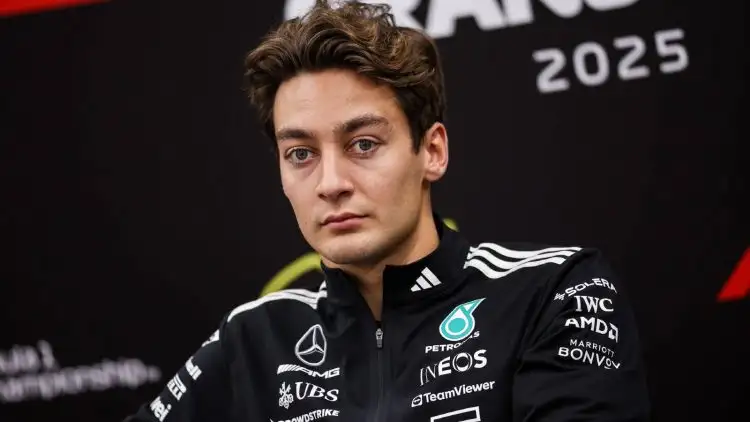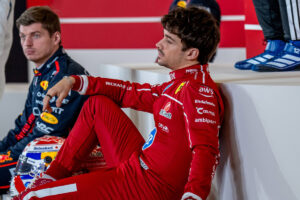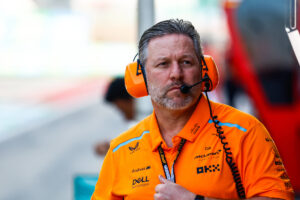Breaking:George Russell Urges FIA Stability Amid Continued Leadership Dep….read more

George Russell Urges FIA Stability Amid Continued Leadership Dep….read more
George Russell, director of the Grand Prix Drivers’ Association (GPDA), has expressed concern over the growing instability within the FIA following the resignation of Robert Reid, its Deputy President for Sport. Reid’s departure marks yet another high-profile exit from motorsport’s governing body, sparking fresh calls for reform and consistency at the top level of Formula 1 governance.
Reid, who had served under FIA President Mohammed Ben Sulayem since 2021, announced his resignation earlier this week. In a public statement, he cited a divergence between his principles and the direction the organization was heading. He said his goal upon joining had been to foster greater transparency, stronger governance, and more collaborative leadership. However, he concluded that those values had increasingly been set aside and that continuing in his role would mean compromising his integrity. “This is about principles, not politics,” Reid stated, emphasizing that motorsport deserves leadership defined by accountability and respect for due process.
The resignation comes during a turbulent time for the FIA, which has seen several senior figures leave in recent years. These include names such as Tim Goss, Natalie Robyn, Deborah Mayer, and race directors Niels Wittich and Eduardo Freitas, among others. The string of departures has sparked concerns about the internal culture and governance of the organization.
Russell, speaking at the Bahrain Grand Prix, reflected on Reid’s exit and the broader instability within the FIA. “Unfortunately, I think every time we hear some news from that side of the sport, it’s not really a big surprise,” the Mercedes driver said. “It’s a real shame to see, especially when it involves someone who’s well respected and has been in the sport for such a long time. As we keep saying—what’s next?”
The British driver stressed the importance of stability within the FIA, particularly as it plays a central role in the functioning and safety of Formula 1. “Hopefully, we get more stability sooner rather than later,” he added.
Russell also touched upon the GPDA’s past attempts to engage with the FIA on regulatory matters, such as the controversial introduction of ‘Appendix B’—a new rule set for driver behavior in the International Sporting Code.
According to Russell, those efforts have largely gone ignored. “We tried to get involved in the past but didn’t really make much headway,” he explained. “Things just seem to keep moving in an unstable direction.”
Despite the lack of progress, Russell said the GPDA remains committed to playing a constructive role, even if its influence seems limited. “We’ve got to trust the teams and Formula 1 to work with the FIA to find common ground. If we can help, we want to be there. But often, it just feels like things are going in their own direction.”
The GPDA received a formal letter from Reid explaining his decision to step down. His departure closely followed public criticism of Ben Sulayem by David Richards, chairman of Motorsport UK. Richards accused the FIA leadership of a moral decline and questioned the organization’s commitment to good governance. He was recently barred from attending a World Motor Sport Council meeting after refusing to sign a stricter non-disclosure agreement (NDA). Reid was also reportedly blocked for the same reason.
Richards had previously threatened legal action against the FIA, arguing that the new NDA undermined transparency by forbidding members from discussing critical issues outside of official settings. The FIA defended the NDA, with General Manager Alberto Villareal addressing the controversy in a letter to Motorsport UK. Villareal emphasized that confidentiality agreements are standard practice in professional organizations, designed to protect sensitive information and ensure the FIA’s mission is not compromised by leaks.
“The unauthorized disclosure of information not only damages the FIA but undermines our ability to serve our member clubs,” Villareal wrote. He also rejected Richards’ claim that the NDA functioned as a “gagging order,” stating it merely reinforced existing duties of confidentiality already expected of council members.
Despite these assurances, the leadership crisis has led to increased scrutiny of the FIA’s internal practices and governance standards. As one of the sport’s most vocal drivers, Russell’s comments reflect a growing frustration among competitors and stakeholders alike. Many in the paddock now hope for meaningful reforms and a return to steady, transparent leadership within the organization.
Until then, the shadow of instability continues to hang over the FIA, with more questions than answers about its future direction.








